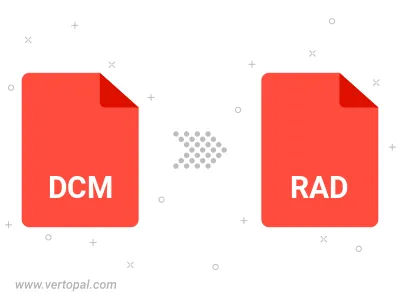Convert DCM to RAD
Convert DCM images to RAD format, edit and optimize images online and free.

DCM, short for Digital Imaging and Communications in Medicine, is a file extension used for medical imaging data. Originating from the DICOM standard developed by the National Electrical Manufacturers Association in collaboration with the American College of Radiology in the 1980s, it facilitates the storage, transmission, and management of medical images and related information across various devices. Its uses span hospitals and clinics, where it integrates imaging modalities like MRI, CT scans, and X-rays, ensuring interoperability and enhancing diagnostic accuracy and efficiency.
The RAD file extension, associated with the Radiance software suite, stands for Radiance Scene Description. It is used to describe materials and geometry for lighting simulations and rendering programs. Developed by Greg Ward at Lawrence Berkeley National Laboratory, Radiance employs ray tracing and an octree data structure for accurate lighting calculations. RAD files are ASCII text files that must be compiled into an octree before rendering.
Drag and drop your DCM file or click Choose File to proceed.
Adjust DCM to RAD settings with tools, then press Convert.
Allow the system to complete the RAD conversion, then download your file.

The Vertopal CLI tool provides efficient conversion from DCM image into RAD image.
cd into the DCM file directory or provide the path.